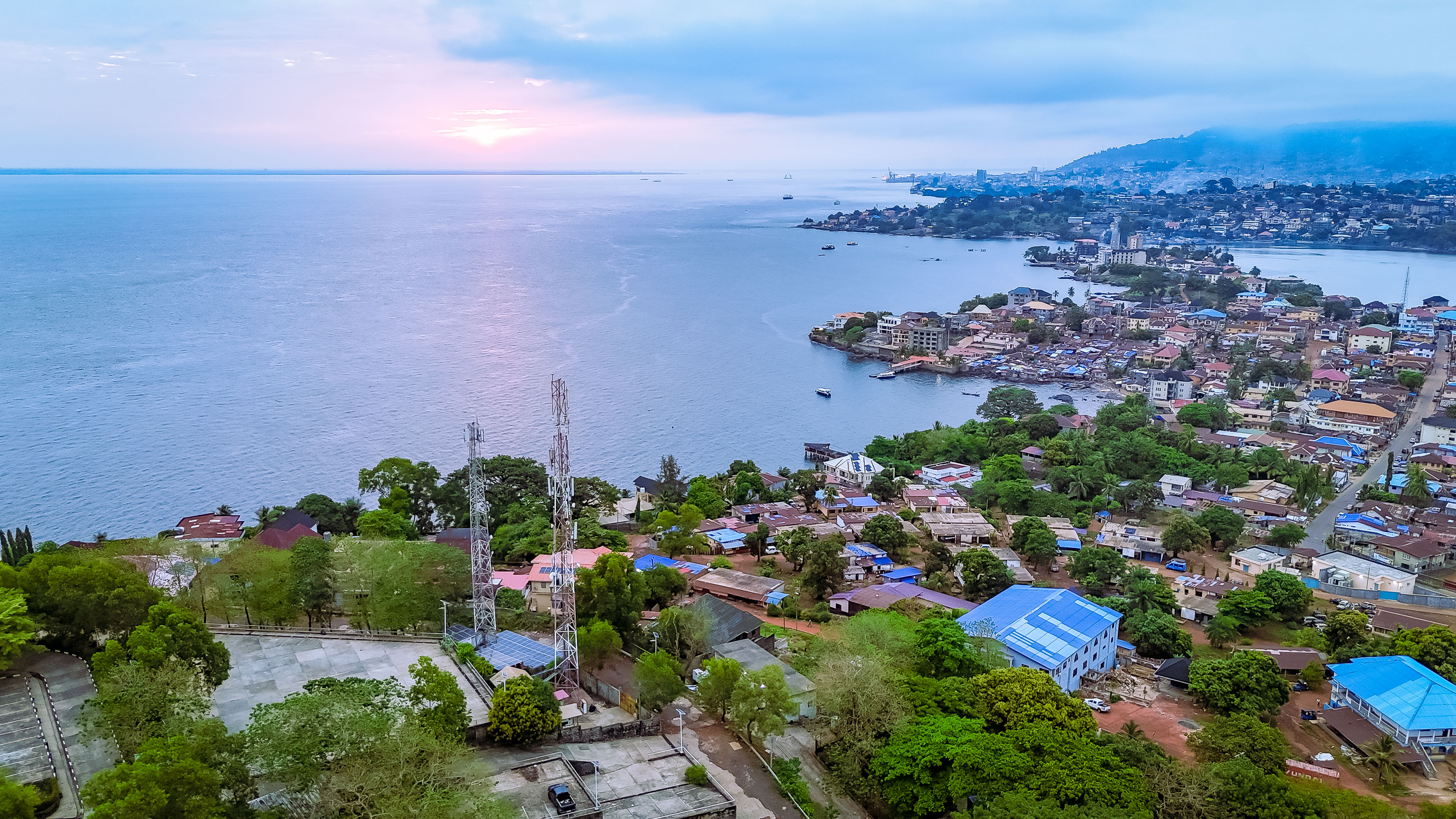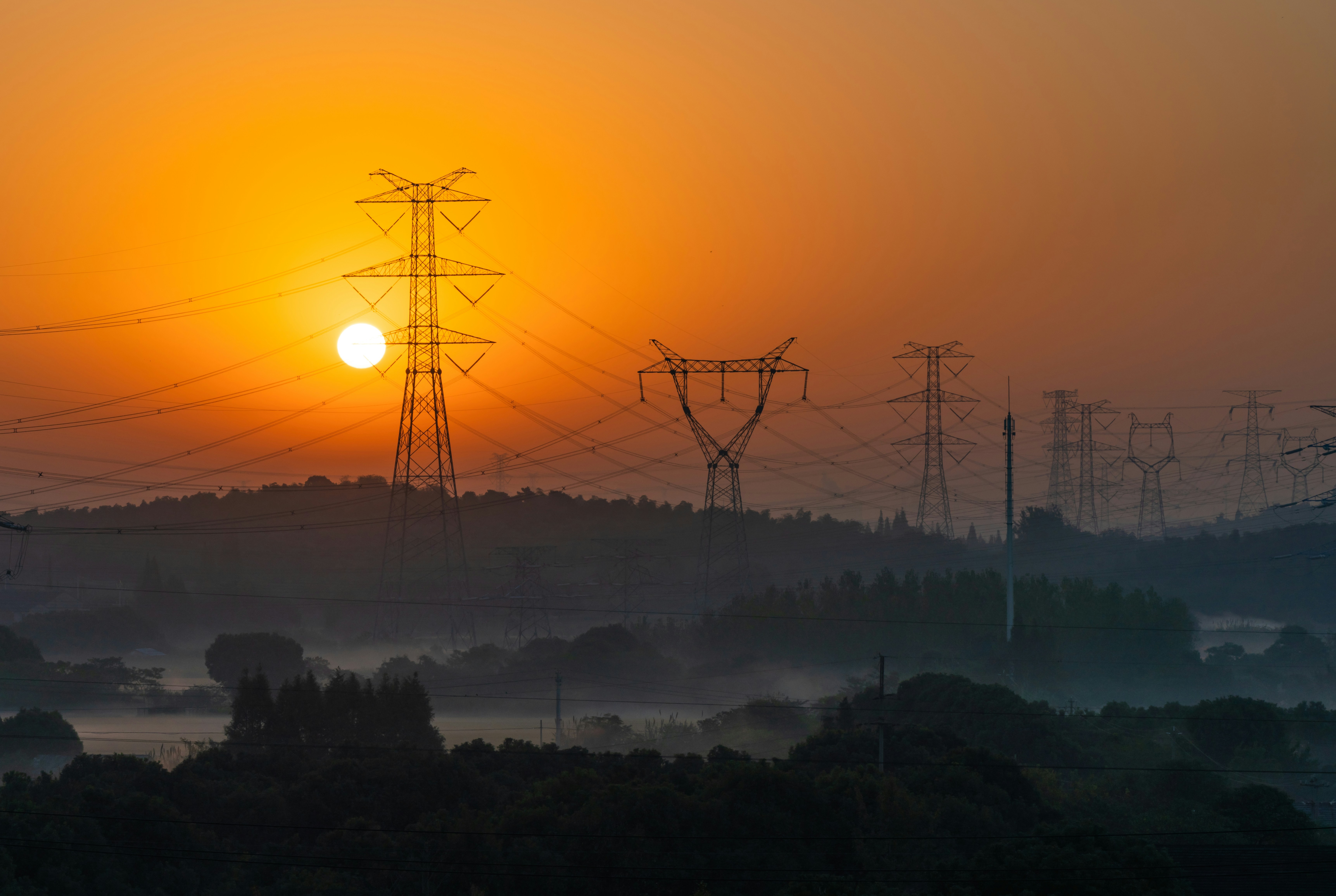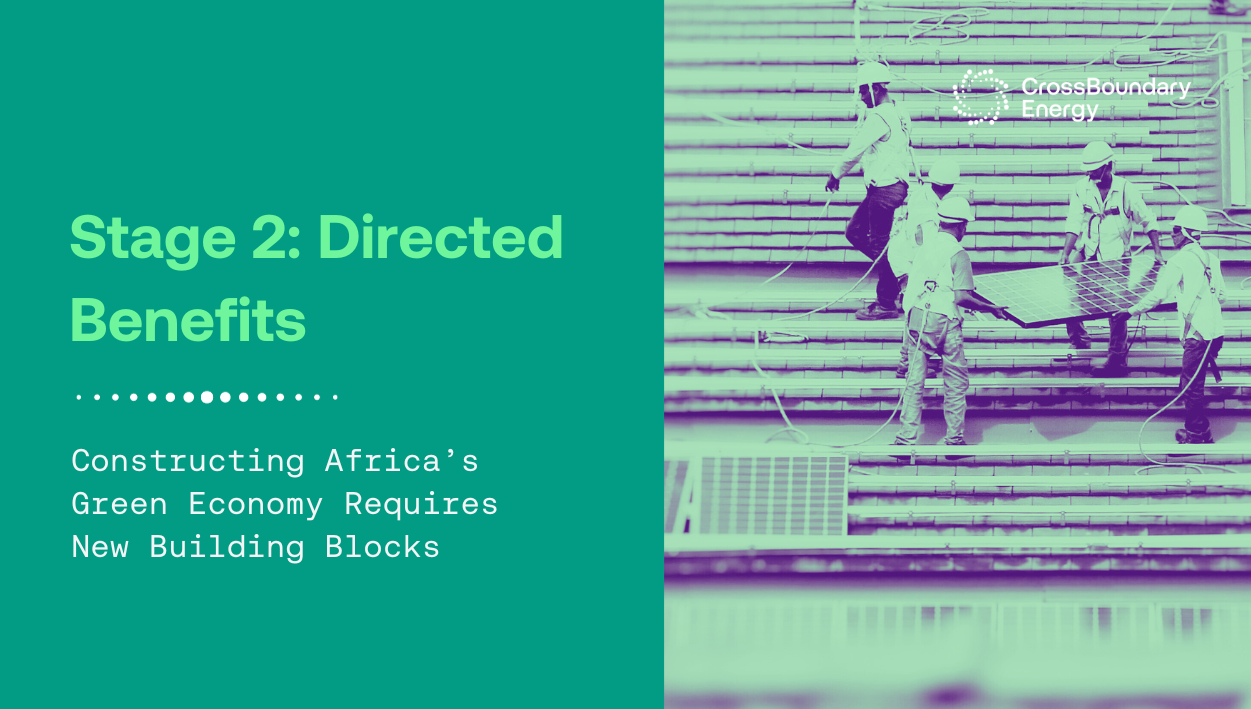
How energy can be digital infrastructure’s new strategic advantage
With mobile penetration rates soaring and data consumption accelerating, the traditional approach of diesel-powered telecommunications towers is proving increasingly unsustainable. The telecommunications sector needs an innovative energy solution that meets functional needs whilst saving capital and operational expenditure. Is this possible?
With mobile penetration rates soaring and data consumption accelerating, the traditional approach of diesel-powered telecommunications towers is proving increasingly unsustainable. The telecommunications sector needs an innovative energy solution that meets functional needs whilst saving capital and operational expenditure. Is this possible?
Africa’s telecommunications sector is experiencing unprecedented growth. Expanding economies, populations, and the advent of new technologies such as 5G and AI are challenging operators of digital infrastructure across the continent to provision these developments reliably and cost-effectively. Similarly, datacenter capacities require modern, reliable power supply.
The perfect storm: the market forces driving change
Africa’s telecommunications industry finds itself at the intersection of several powerful market trends. Unpredictable fuel costs, weak grid infrastructure, increases in energy demand, and regulatory and environmental pressures collectively make a compelling and urgent case for innovative energy supply.
Fuel cost volatility and supply chain disruptions
Roughly 70% of Africa’s 500,000 telecommunications towers rely on diesel as their power source, accounting for 30-60% of tower OpEx in remote areas. Fuel costs have become a significant operational burden for network operators across Africa, increasing by 40-60% over the past two years in many African markets. Recent global events, including supply chain disruptions from regional conflicts and geopolitical tensions, have created unprecedented volatility in fuel prices.
According to GSMA intelligence, the cost of fuel transport adds a further 15%-30% to tower OpEx. However, beyond cost considerations, fuel supply reliability has become a critical concern. Remote tower sites often face irregular fuel deliveries, which compromise network uptime and service quality. Fuel transportation logistics to remote locations not only add to operational complexity, but also introduce security risks in certain regions.
Grid infrastructure limitations
While urban areas in many African countries enjoy relatively stable grid connectivity, rural and semi-urban regions—where tower densification is most needed—often lack reliable electrical infrastructure. Where grid connections do exist, power quality issues, including voltage fluctuations and frequent outages, make grid power alone insufficient for consistent, high-quality power supply. Between 60-80% of telecom towers in Sub-Saharan Africa experience 8-12 hours of daily grid outages.
The situation is particularly acute in certain countries. In Nigeria, grid availability can be as low as 40-50% in certain regions. In the Democratic Republic of Congo, vast rural areas remain completely off-grid, and in Sierra Leone, a demand cap of 6MW was recently announced. Even in more developed markets like South Africa and Kenya, load shedding and grid instability have increased operational challenges for network operators.
Surging energy demand
Network expansion and densification, the proliferation of 5G, and the data centers required to power digital services have rapidly increased energy demand. 5G technology requires 10 times the data rate and a fourfold increase in tower density, resulting in a 2-3 times higher energy demand, despite its efficiency per MB.
5G connectivity also requires the proliferation of smaller edge data centers, each requiring at least 50kW. AI data centers, which do not presently exist in Africa, require loads of at least 50MW and are already growing to a GW scale in some US locations. Most African countries do not have enough grid capacity to power new data centers, which severely limits the pace of development.
Regulatory and environmental pressures
Governments across Africa are increasingly implementing carbon reduction mandates and environmental regulations that affect the telecommunications sector. Countries like Morocco, Egypt, and South Africa have established renewable energy targets that include telecommunications infrastructure. Additionally, mobile network operators are facing pressure from investors and partners to demonstrate environmental responsibility through measurable carbon footprint reductions.
The strategic advantage of renewable energy
Despite the challenging market forces, operators like Orange, who have made early shifts to renewable energy, have seen their energy OPEX reduced by as much as 30%, while cutting carbon emissions by over 65%. However, operational advantages extend far beyond simple cost reductions.
Enhanced network reliability and performance
Solar-battery hybrid systems provide superior power reliability compared to diesel generators, which are prone to mechanical failures, maintenance issues, and fuel supply interruptions.
This enhanced reliability directly translates to improved network performance metrics. Tower operators report uptime improvements of 15-25% when transitioning from diesel-dependent systems to solar-hybrid solutions. For network operators, this means fewer customer complaints, reduced revenue loss from service interruptions, and improved network quality scores that can affect regulatory compliance and competitive positioning.
For example, CrossBoundary Energy developed a power solution to provide reliable, consistent uptime for Zoodlabs’ ambitious 5G network rollout in Sierra Leone. This solution incorporates advanced solar-hybrid systems paired with intelligent energy management platforms designed to support the high energy demands of 5G infrastructure and provide resilient, scalable power to Zoodlabs’ 5G tower network. Renewable energy enabled the first rollout of 5G infrastructure in the country amidst fluctuating grid reliability.
Reliability and performance advantages also extend to data centres. The primary challenge for data centre operators in Africa is not merely the quantity of power but its quality and consistency. Renewable energy solutions can provide the stable, clean power essential for sensitive IT equipment, mitigating the risks of data corruption, hardware degradation, and costly downtime associated with unreliable grid power or the vagaries of diesel generation.
Renewable energy systems also offer superior scalability compared to diesel generators, which often require complete replacement to accommodate increased power demands. Solar panels and battery banks can be incrementally expanded to meet growing power requirements without major system overhauls.
Operational efficiency and remote monitoring
Renewable energy systems equipped with smart monitoring capabilities provide unprecedented visibility into power consumption patterns and system performance. This data enables predictive maintenance, resolving issues proactively and reducing the need for costly site visits. Remote monitoring also facilitates better energy management, helping operators optimize power consumption across their tower portfolios.
The reduction in site visits significantly reduces operational expenses and security risks associated with transporting valuable fuel supplies.
The energy-as-a-service model: removing barriers to adoption
Renewable energy solutions, therefore, offer multiple advantages that enable the telecommunications industry to navigate market volatility. However, renewable energy deployments require significant upfront capital investments, creating barriers for many network operators and tower companies. The emergence of Energy Service Companies (ESCOs) has fundamentally changed this dynamic by offering renewable energy solutions as a service, without upfront costs.
Under these arrangements, ESCO partners finance, install, and maintain renewable energy systems, with customers paying for energy rather than equipment and maintenance. This approach eliminates upfront capital expense while providing immediate operational benefits and cost savings. Typical ESCO contracts span 10-15 years, with energy savings around 20-40% compared to fossil-based alternatives.
The energy-as-a-service model also reduces technical and operational risks, allowing digital infrastructure companies to focus on their core business while benefiting from reliable, cost-effective power solutions. For network expansions, ESCOs can often also finance other infrastructure, such as new towers and civil works. Such arrangements can further enable network operators to expand their footprint quickly and ensure optimal reliability for their network from the get-go.
Given the importance of power infrastructure to telecommunications operations, the benefits of renewable energy, and the appeal of the energy-as-a-service model, it is important that companies evaluate and select the right ESCO. Several dimensions should be considered, including the partner’s track record, financial stability, local presence, innovation, and contractual flexibility.
Technical expertise and track record
The power requirements, reliability standards, and operational constraints of telecommunications equipment differ significantly from other sectors. ESCOs should be evaluated for their demonstrated experience in telecommunications power solutions, not just in general renewable energy projects.
There should also be evidence of case studies and references from existing telecommunications clients, as well as verified performance claims based on direct customer feedback. Partners should demonstrate expertise in hybrid system design, battery management, and telecommunications-grade power conditioning.
Financial stability and backing
Energy Service Agreements (ESAs) are long-term and require partners with strong financial foundations. Potential partners should have financial stability, including access to capital markets and backing from established financial institutions.
ESCOs with diversified financing sources and established relationships with development finance institutions, commercial banks, and investment funds focused on African infrastructure development, should be considered.
Local presence and support
While renewable energy technology is increasingly standardised, local presence remains critical for effective system maintenance, rapid issue resolution, and regulatory compliance. ESCOs should have strong local operations and partners, including technical staff, spare parts inventory, and service response capabilities.
ESCOs should also understand local regulatory requirements, environmental conditions, and business practices. Local partnerships or joint ventures with established African companies can provide valuable market knowledge and operational effectiveness.
Focus on technology and innovation
The renewable energy sector evolves rapidly, with continuous improvements in battery technology, smart monitoring systems, and system optimization capabilities. ESCOs should demonstrate ongoing investment in technology development and innovation to ensure that energy infrastructure remains current and competitive throughout the contract term.
ESCOs’ approaches to system monitoring, predictive maintenance, and performance optimization should also be evaluated. Advanced monitoring and analytics capabilities can provide valuable insights for both energy management and overall tower performance.
Contractual flexibility and risk
ESAs should provide flexibility to accommodate changing business requirements while clearly allocating risks and responsibilities. Capacity expansion, technology upgrades, performance guarantees, and contract termination scenarios should be considered.
Contracts should include clear performance metrics, service level agreements, and remedies for non-performance. Risk allocation should reflect each party’s ability to manage specific risks, with ESCOs typically assuming technical and operational risks and customers bearing business and regulatory risks.
Seizing the renewable energy opportunity
The convergence of exponential growth, rising fuel costs, grid infrastructure limitations, and improving renewable energy economics has created a compelling opportunity for Africa’s telecommunications sector to switch to renewable energy solutions. Network operators and tower companies that embrace these solutions can achieve immediate cost savings, improved reliability, and enhanced operational efficiency, positioning themselves for long-term success.
As Africa’s digital transformation accelerates, those who act decisively to address power challenges through renewable energy solutions will be best positioned to capitalise on the continent’s tremendous telecommunications growth opportunity. The key to success in solving power challenges lies in selecting trustworthy Energy Services Companies and entering into well-structured Energy Services Agreements.
The question is not whether to adopt renewable energy solutions, but how quickly and effectively telecommunications companies can use them to gain strategic competitive advantage in Africa’s rapidly evolving digital landscape.




